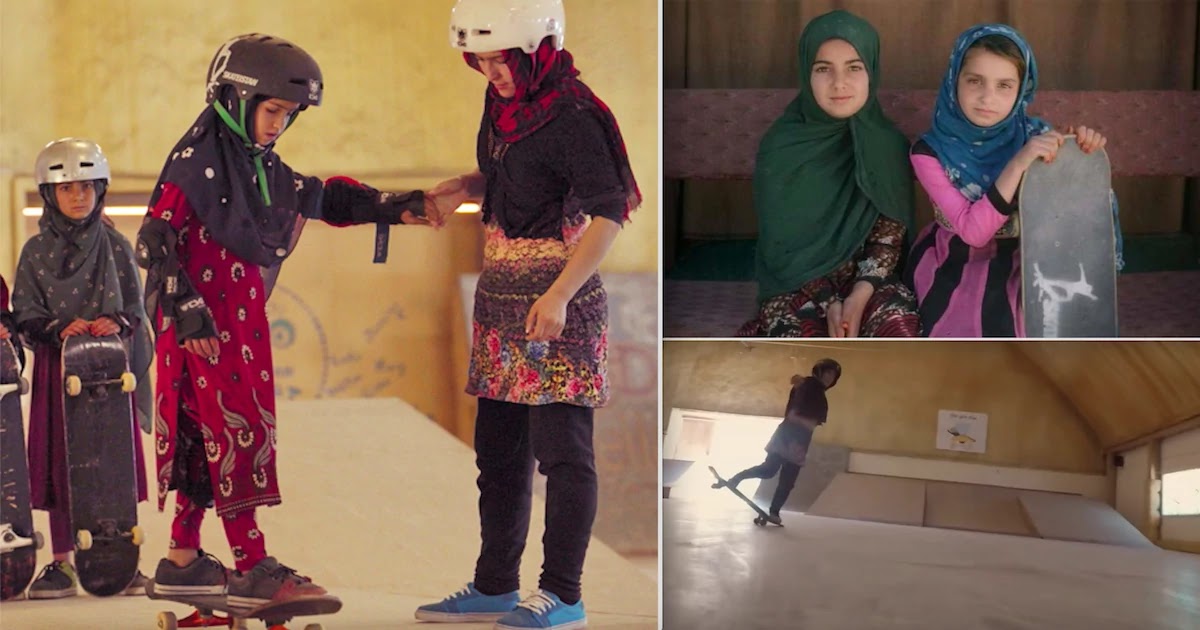
Director Carol Dysinger and filmmaker Elena Andreicheva won the Oscar for the best short-subject documentary for their: Learning to Skateboard in a Warzone (If You're a Girl) in the 92nd Academy Awards. This is a huge win for all women directors working in the male-dominated Hollywood circle, but also for the girl skateboarders in Afghanistan who are reclaiming their lives in one of the world's most dangerous warzones. The unconventional documentary is pioneering in the way it depicts the nation's female population, contradicting preexisting misconceptions on how women in Afghanistan lead their lives.
After accepting the award for best documentary from Mark Ruffalo, Dysinger stated:
"This movie is my love letter to the brave girls of that country. They teach girls courage, to raise your hand, to say I am here, I have something to say, and I'm going to take that ramp, don't try to stop me."
#Oscars Moment: "Learning to Skateboard in a War Zone (If You're a Girl)" wins for Best Documentary Short. Carol Dysinger and Elena Andreicheva (@_Andreicheva) accept their Oscars. pic.twitter.com/PJThEPxXJJ
— The Academy (@TheAcademy) February 10, 2020
Deadline reports that Learning to Skateboard in a Warzone (If You're a Girl), tells the story of students at the Skateistan high school in Kabul, who get the opportunity to study and learn how to skateboard.
Given the social oppression the girls in Afghanistan experience, Skateistan gives a choice that has never been heard before.
"It means the world to them. I'm a teacher, I'm a professor, and I have never in my life seen kids that were so hungry to learn and just so happy to learn because they know it's not a given and they like being engaged with their minds," Dysinger revealed to Deadline.
Congratulations to the team behind Learning to Skateboard in a Warzone (If You're a Girl) for winning Best Documentary Short at last night's Oscars, a film that highlights the work of a project we've long admired, @Skateistan https://t.co/mlI1KW6kwE
— huck (@HUCKmagazine) February 10, 2020
She pointed that if it wasn't for Skateistan, those girls, "would be very much in the house around the women helping out, hanging onto skirts, trying not to be bored and taking care of the boys or the babies, whichever there are more of or who needs it."
"One of the things I put in the movie because I thought it was so wonderful, the teacher said, 'I teach them if you only know a little bit of the answer, go ahead, raise your hand. You learn the rest at the board.' I thought that's so brilliant, because really what these women are doing is teaching these kids, these girls, to raise their hand. It's like the first act of courage as a woman in that kind of culture is to say, 'Excuse me, I know the answer. I have an idea. I think this is what we should do," the director continued.
Furthermore, attending Skateistan offers a much more extensive range of possibilities and prospects to its students that would never be available in their home. "Someone who is very poor will see someone who's not so poor, someone who's Sunni sees someone who's Shia. They get to witness other kinds of families, other kinds of lives which they wouldn't normally get to do because it's a very enclosed society"
Since 2008, Skateistan has provided safe spaces where children can have fun, build their skills and confidence. When our first Skate School opened in Kabul in 2010, we made sure to document the dreams of our young Instructors, and admired their progress. #skateistanstory pic.twitter.com/ROKRqkEYjW
— Skateistan (@Skateistan) April 9, 2020
To enter the unknown world of women and girls in Afghanistan, Dysinger used an all-female crew. Regarding her selection of crew, the director said:
"It was very clear that to get it right. It had to be an all-female crew. I was constantly crossing this barrier between very serious men being very serious, drinking very serious tea and walk back [to another part of the dwelling]. There would be a pile of kids, a bunch of women trying to get some food down and grandmother yelling, 'You're doing the potatoes wrong.' It was a huge difference"
Talking of her refreshing portrayal of Afghanistan's women, Dysinger said, "It's a movie I've wanted to make—not the skateboarding part, but the girls part; the skateboarding was extra but effective, it seems. And it was just such a pleasure to be able to get my favorite part of Afghanistan, which is the girls. I just love these kids. I just love them so much, and it was just so nice to be able to bring them into the world where they're rarely seen as the people they actually are."












COMMENTS